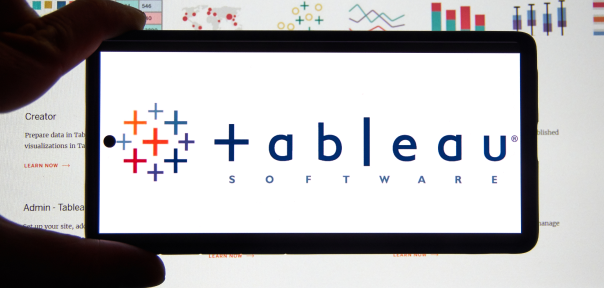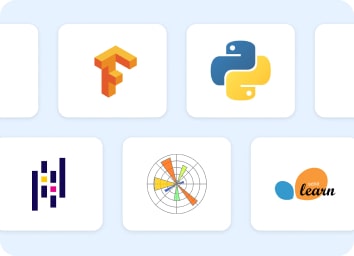Earn a certificate & get recognized
Business Intelligence for Beginners
Learn Business Intelligence from basics in this free online training. The Business Intelligence course is taught hands-on by experts. Learn about various Case Studies on BI & lot more. Best for Beginners. Start now!
Instructor:
Dr. Srabashi BasuModules updated 07/2025
Business Intelligence for Beginners
6.8K+ learners enrolled so far
Stand out with an industry-recognized certificate
10,000+ certificates claimed, get yours today!
Get noticed by top recruiters
Share on professional channels
Globally recognised
Land your dream job

Skills you will gain
Intro to Business Intelligence
Various Case Studies on BI
Key Highlights
Get free course content
Master in-demand skills & tools
Test your skills with quizzes
About this course
Business Intelligence (BI) uses software tools and applications to analyze data and generate insights for data-driven decision-making. Our free course on Business Intelligence for Beginners covers BI basics, advanced concepts, and real-world applications in different industries. You'll learn about different types of BI, the technology behind successful BI, and get started with BI. Our course includes case studies on airlines and hospitality, retail business, and customer churn to showcase the practical applications of BI.
Whether you're a business professional or a student, this course is designed for beginners and requires no prior knowledge of BI or data analysis. Join us today and take your first step towards becoming a BI expert!
Course outline
What is Business Intelligence ?
Getting started with Business Intelligence
Case study- Airlines and Hospitality
Case study- Retail Business
Case study- Customer Churn
Technology behind successful BI
Summary of BI course
QnA of Business Intelligence
Get access to the complete curriculum once you enroll in the course
Stand out with an industry-recognized certificate
10,000+ certificates claimed, get yours today!
Get noticed by top recruiters
Share on professional channels
Globally recognised
Land your dream job

Business Intelligence for Beginners

1.5 Hours
Beginner
6.8K+ learners enrolled so far
Get free course content
Master in-demand skills & tools
Test your skills with quizzes
Learner reviews of the Free Courses

5.0
5.0

5.0
5.0

5.0
Our course instructor

Dr. Srabashi Basu
Professor, PhD Statistics
Management Expert
Frequently Asked Questions
Will I receive a certificate upon completing this free course?
Is this course free?
Will I get a certificate after completing this Business Intelligence free course?
Yes, you will get a certificate of completion for Business Intelligence after completing all the modules and cracking the assessment. The assessment tests your knowledge of the subject and badges your skills.
How much does this Business Intelligence course cost?
It is an entirely free course from Great Learning Academy. Anyone interested in learning the basics of Business Intelligence can get started with this course.
Is there any limit on how many times I can take this free course?
Once you enroll in the Business Intelligence course, you have lifetime access to it. So, you can log in anytime and learn it for free online.
Can I sign up for multiple courses from Great Learning Academy at the same time?
Yes, you can enroll in as many courses as you want from Great Learning Academy. There is no limit to the number of courses you can enroll in at once, but since the courses offered by Great Learning Academy are free, we suggest you learn one by one to get the best out of the subject.
Why choose Great Learning Academy for this free Business Intelligence course?
Great Learning Academy provides this Business Intelligence course for free online. The course is self-paced and helps you understand various topics that fall under the subject with solved problems and demonstrated examples. The course is carefully designed, keeping in mind to cater to both beginners and professionals, and is delivered by subject experts. Great Learning is a global ed-tech platform dedicated to developing competent professionals. Great Learning Academy is an initiative by Great Learning that offers in-demand free online courses to help people advance in their jobs. More than 5 million learners from 140 countries have benefited from Great Learning Academy's free online courses with certificates. It is a one-stop place for all of a learner's goals.
What are the steps to enroll in this Business Intelligence course?
Enrolling in any of the Great Learning Academy’s courses is just a one step process. Sign-up for the course, you are interested in learning through your E-mail ID and start learning them for free online.
Will I have lifetime access to this free Business Intelligence course?
Yes, once you enroll in the course, you will have lifetime access, where you can log in and learn whenever you want to.
Become a Skilled Professional with Pro Courses
Gain work-ready skills with guided projects, top faculty and AI tools, all at an affordable price.

View Course

Included with Pro Subscription


View Course

Included with Pro Subscription
.jpg)
View Course

Included with Pro Subscription


View Course

Included with Pro Subscription

View Course

Included with Pro Subscription

View Course

Included with Pro Subscription
 (1).jpg)
View Course

Included with Pro Subscription

View Course

Included with Pro Subscription




View Course

Included with Pro Subscription


View Course

Included with Pro Subscription


View Course

Included with Pro Subscription


View Course

Included with Pro Subscription

View Course

Included with Pro Subscription
.png)
View Course

Included with Pro Subscription
.png)
View Course

Included with Pro Subscription
.png)
View Course

Included with Pro Subscription

View Course

Included with Pro Subscription
.png)
View Course

Included with Pro Subscription
 (1).jpg)
View Course

Included with Pro Subscription
.png)
View Course

Included with Pro Subscription


.png)

View Course

Included with Pro Subscription




View Course

Included with Pro Subscription

View Course

Included with Pro Subscription

View Course

Included with Pro Subscription

View Course

Included with Pro Subscription
.png)
View Course

Included with Pro Subscription
.png)
View Course

Included with Pro Subscription

View Course

Included with Pro Subscription

View Course

Included with Pro Subscription

View Course

Included with Pro Subscription


View Course

Included with Pro Subscription

View Course

Included with Pro Subscription


View Course

Included with Pro Subscription
 (1).png)
View Course

Included with Pro Subscription


View Course

Included with Pro Subscription

View Course

Included with Pro Subscription

View Course

Included with Pro Subscription
.png)
View Course

Included with Pro Subscription
.png)
.png)
View Course

Included with Pro Subscription


View Course

Included with Pro Subscription



View Course

Included with Pro Subscription

View Course

Included with Pro Subscription
.jpg)
View Course

Included with Pro Subscription


View Course

Included with Pro Subscription

View Course

Included with Pro Subscription

View Course

Included with Pro Subscription

View Course

Included with Pro Subscription

View Course

Included with Pro Subscription
.png)
View Course

Included with Pro Subscription
Popular

View Course

Included with Pro Subscription


View Course

Included with Pro Subscription
.jpg)
View Course

Included with Pro Subscription


View Course

Included with Pro Subscription

View Course

Included with Pro Subscription

View Course

Included with Pro Subscription
 (1).jpg)
View Course

Included with Pro Subscription

View Course

Included with Pro Subscription
Microsoft Courses




View Course

Included with Pro Subscription


View Course

Included with Pro Subscription


View Course

Included with Pro Subscription


View Course

Included with Pro Subscription
Management

View Course

Included with Pro Subscription
.png)
View Course

Included with Pro Subscription
.png)
View Course

Included with Pro Subscription
.png)
View Course

Included with Pro Subscription

View Course

Included with Pro Subscription
.png)
View Course

Included with Pro Subscription
 (1).jpg)
View Course

Included with Pro Subscription
.png)
View Course

Included with Pro Subscription
Cloud Computing


.png)

View Course

Included with Pro Subscription



IT & Software

View Course

Included with Pro Subscription

View Course

Included with Pro Subscription

View Course

Included with Pro Subscription

View Course

Included with Pro Subscription
.png)
View Course

Included with Pro Subscription
.png)
View Course

Included with Pro Subscription

View Course

Included with Pro Subscription

View Course

Included with Pro Subscription

View Course

Included with Pro Subscription


View Course

Included with Pro Subscription

View Course

Included with Pro Subscription


View Course

Included with Pro Subscription
 (1).png)
View Course

Included with Pro Subscription


View Course

Included with Pro Subscription

View Course

Included with Pro Subscription

View Course

Included with Pro Subscription
Cyber Security
.png)
View Course

Included with Pro Subscription
.png)
.png)
View Course

Included with Pro Subscription
AI & Generative AI


View Course

Included with Pro Subscription



View Course

Included with Pro Subscription

View Course

Included with Pro Subscription
.jpg)
View Course

Included with Pro Subscription
Data Science & ML


View Course

Included with Pro Subscription

View Course

Included with Pro Subscription

View Course

Included with Pro Subscription

View Course

Included with Pro Subscription

View Course

Included with Pro Subscription
.png)
View Course

Included with Pro Subscription
Subscribe to Academy Pro & get exclusive features
$25/month
No credit card required

20+ Pro courses

200+ coding exercises with AI support

30+ hands-on guided projects

AI mock interviews
Recommended Free Management courses



Similar courses you might like


.jpg)

Related Management Courses
-
Programs starting at ₹5,000 per month
Placement assistance
Personalized mentorship
Detailed curriculum
Learn from world-class faculties
50% Average salary hike -
Sponsored


Great Lakes Institute of Management
Post Graduate Diploma in Management (Online)24 Months · Online
Online MBA EquivalentKnow More
-


Walsh College
Doctor of Business Administration in General Management3 Years · Online
Top 10 best online DBA DegreeKnow More
-


Great Lakes Executive Learning
Executive PG Program in Management12 months · Online
Certificate from Great LakesKnow More
Relevant Career Paths >
Business Intelligence for Beginners
Business Intelligence (BI) refers to the process of collecting, analyzing, and transforming data into valuable insights that can be used to make informed business decisions. BI involves a combination of technologies, tools, and practices that enable businesses to access and analyze data to gain a competitive advantage in their industry.
The primary goal of BI is to provide decision-makers with a holistic view of the business through data analysis, which can help identify patterns, trends, and opportunities. This can be achieved through the use of various tools such as dashboards, reports, and data visualizations, which present complex data in an easy-to-understand format. The importance of BI lies in its ability to provide real-time insights into key business metrics, enabling organizations to make informed decisions quickly. By leveraging BI, businesses can identify areas where they are performing well, areas that need improvement, and areas where new opportunities exist.
One of the main benefits of BI is its ability to help organizations optimize their operations by streamlining processes, improving efficiencies, and reducing costs. BI can also help businesses gain insights into customer behavior and preferences, enabling them to tailor their products and services to meet the needs of their customers better. Another significant benefit of BI is its ability to enhance collaboration and communication within an organization. By providing a centralized platform for data analysis, BI can help teams across departments work together more efficiently and effectively.
In recent years, there has been a significant increase in the use of advanced BI technologies such as artificial intelligence (AI) and machine learning (ML). These technologies can help organizations make predictions and forecasts based on historical data, enabling them to anticipate trends and identify potential risks. To implement BI effectively, organizations must have a solid data governance strategy in place. This involves defining the processes and policies for managing data, including how it is collected, stored, and accessed. Organizations must also ensure that their data is accurate, consistent, and reliable to ensure that the insights derived from BI are accurate.
In conclusion, Business Intelligence is a crucial tool for businesses looking to gain a competitive advantage in their industry. By providing real-time insights into key business metrics, BI enables organizations to make informed decisions quickly, optimize operations, and improve efficiencies. With the increasing use of advanced technologies such as AI and ML, BI is set to become even more critical in the coming years.












